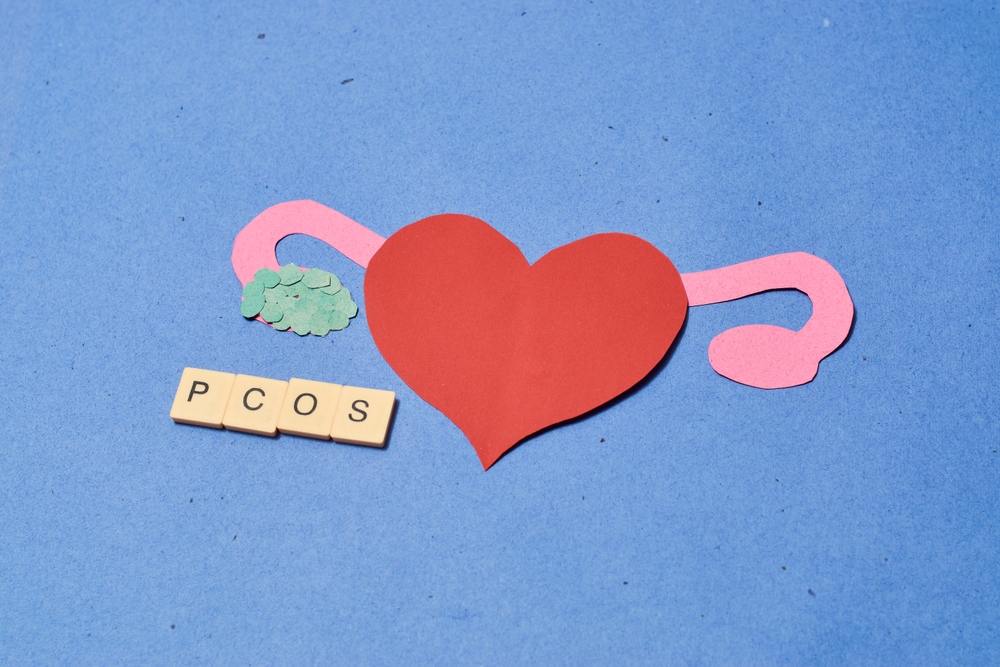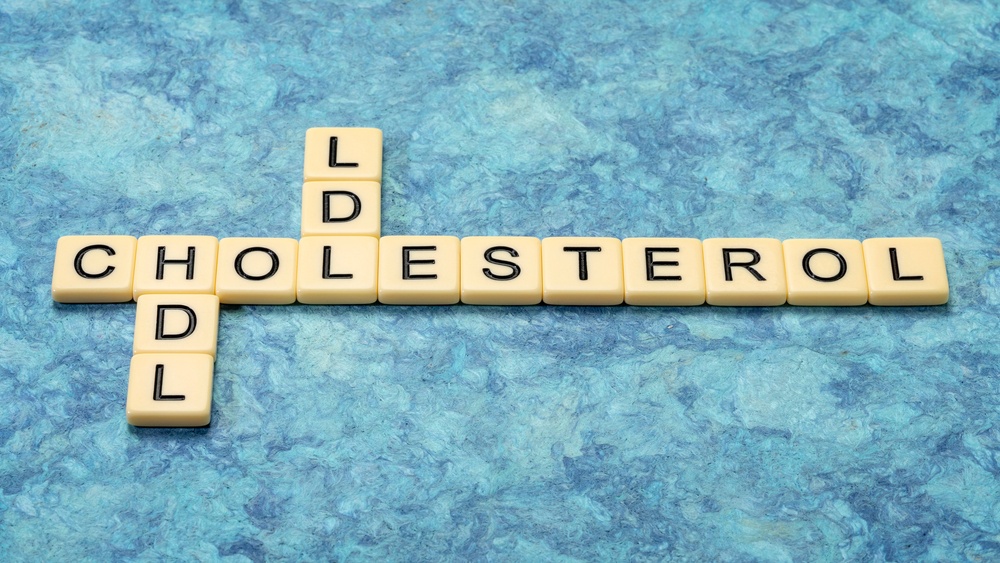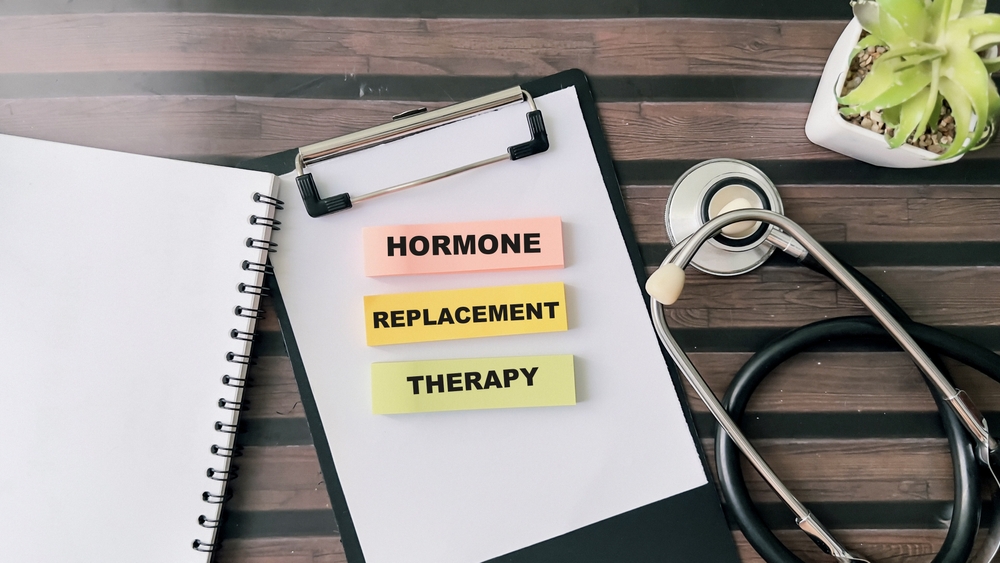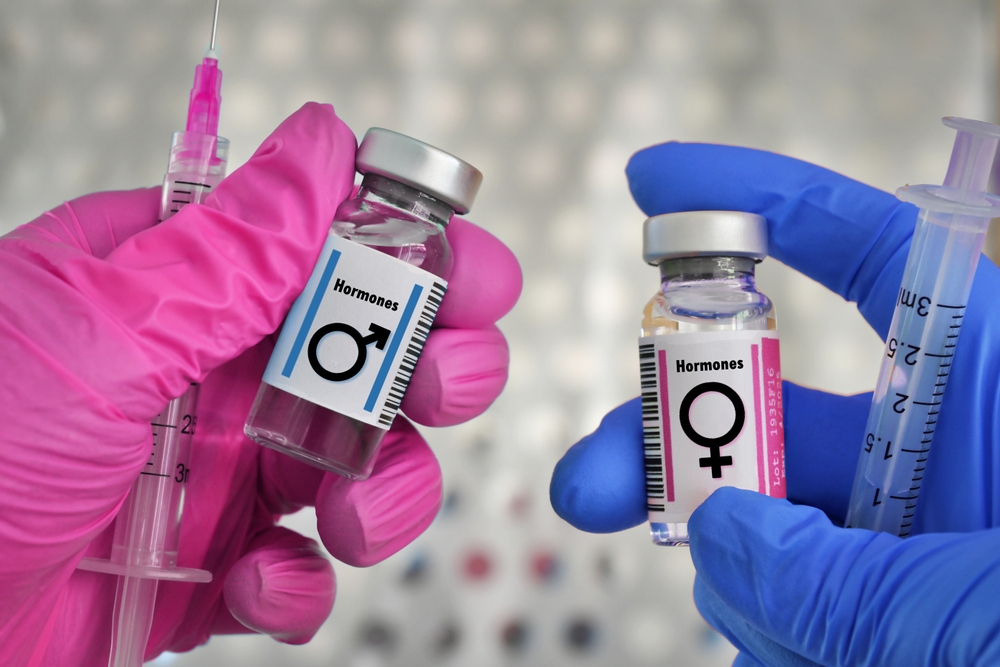Quick Summary:
- The Basics Of PCOS: PCOS is a complex hormonal disorder that affects ovulation, metabolism, and overall health, with symptoms like irregular periods, acne, and weight gain.
- There Are Myriad Medication Options For PCOS: Conventional treatments like birth control, Metformin, and fertility meds can offer fast symptom relief but often don't address root causes.
- Natural Remedies For PCOS Come Down To Lifestyle Changes: Natural remedies for PCOS focus on lifestyle changes like diet, supplements, and stress management to support long-term healing.
- Medications Or Natural Remedies?: Medications work quickly and target symptoms, while natural approaches take longer but may offer deeper, more sustainable results.
- Digging Deeper Into Natural Strategies: Diet, targeted supplements (like inositol and omega-3s), gentle exercise, and better sleep can all help balance hormones naturally.
- Sometimes Medication Is The Best Choice: If symptoms are severe, or you're trying to conceive or struggling with mental health, medication can be a smart and supportive option.
- Create A Personalized Plan: Many people find success blending both approaches. What matters is listening to your body and finding what works for your life.
If you've just been diagnosed with polycystic ovary syndrome—more commonly known as PCOS—you may be wondering what to do next. Do you head straight to the pharmacy? Or is it possible to manage symptoms naturally?
The good news is: you have options.
In this article, we'll break down both conventional medications and natural remedies for PCOS, weigh the pros and cons of each, and help you figure out what might work best for you.

What Does It Mean To Have PCOS?
PCOS is a hormonal disorder that impacts how the ovaries function (1). While the name highlights the presence of cysts on the ovaries, not all people with PCOS have them.
More importantly, PCOS tends to cause irregular periods, excess androgen levels (that can lead to acne and unwanted hair growth), and issues with insulin resistance, which can make weight loss and energy management difficult.
Other symptoms may include:
- Irregular or missed periods
- Weight gain, especially around the belly
- Thinning hair on the scalp
- Mood changes or fatigue
- Fertility challenges
At its core, PCOS is about hormonal imbalances and metabolic dysfunction. And while there's no “cure,†there are many ways to manage it—and even reverse some symptoms over time.
Common Medications For Treating PCOS
Let's start with the solutions that your OB/GYN or reproductive endocrinologist might suggest. Conventional medicine for PCOS focuses on managing symptoms. It doesn't always address the root causes, but it can offer fast relief and improved quality of life, especially for those dealing with severe symptoms.
Here are some of the most commonly prescribed medications:
1. Birth Control Pills
Birth control pills regulate periods, reduce acne, and lower androgen levels. Many people use them for long-term cycle control, especially when trying to prevent the endometrial complications that can come with irregular periods.
Pros: Easy to use, reliable cycle regulation
Cons: Can cause mood swings, weight gain, or nausea in some people, and they don't actually treat the underlying hormone imbalance
2. Metformin
Originally developed for type 2 diabetes, Metformin helps with insulin resistance—a major issue for many with PCOS. It can also support ovulation in some women.
Pros: Targets insulin resistance, one of the root issues in PCOS
Cons: Gastrointestinal side effects like nausea and diarrhea are common
3. Spironolactone
This anti-androgen medication can help reduce acne and excess facial or body hair.
Pros: Effective for visible symptoms like acne and hirsutism
Cons: Can't be used during pregnancy and may cause electrolyte imbalance
4. Fertility Medications (Clomid, Letrozole)
For those trying to conceive, medications that stimulate ovulation such as Clomid and Letrozole may be part of the plan.
Pros: Increases chance of pregnancy
Cons: Needs careful monitoring and may cause mood swings or ovarian overstimulation
Sure, medication can be a helpful part of PCOS management—but it's not the only route.
Natural Remedies For Treating PCOS
Natural remedies for PCOS focus on treating the root causes: insulin resistance, inflammation, and hormone imbalance.
Most people who opt for natural remedies to treat their polycystic ovary syndrome are just looking to support their body function as optimally as possible, as opposed to just avoiding medication. And while “natural†doesn't always mean “better†or “safe for everyone,†many of these strategies are evidence-based and widely used by functional medicine practitioners.
Let's take a closer look at what's actually working for people using natural approaches to manage PCOS:
1. Diet Changes
Insulin resistance is a major PCOS driver. Adjusting your diet to keep blood sugar stable is one of the most powerful changes you can make.
PCOS-friendly foods include:
- Non-starchy vegetables (spinach, broccoli, bell peppers)
- Lean proteins (eggs, chicken, tofu)
- Healthy fats (avocados, nuts, olive oil)
- Complex carbs (quinoa, lentils, sweet potatoes)
Foods to limit include:
- Refined sugars (soda, candy, baked goods)
- Processed foods with artificial additives
- Excess dairy or gluten
Meal timing can also help. Consider pairing protein, fat, and fiber at every meal. And don't skip breakfast!
2. Supplements That Support Hormone Balance
Some supplements show real promise in managing PCOS naturally (2):
- Inositol (Myo and D-Chiro): Improves insulin sensitivity, promotes ovulation, and reduces testosterone.
- Spearmint Tea: Two cups a day have been shown to reduce androgens in small studies (3).
- Omega-3 Fatty Acids: Anti-inflammatory and great for mood, skin, and hormone balance.
- Magnesium And Zinc: Help with insulin sensitivity, inflammation, and PMS symptoms.
- Berberine: Herbal alternative to Metformin, but with similar effects on insulin resistance. Keep in mind, any berberine intake should be monitored by a healthcare provider.
Choosing to prioritize natural remedies is totally fine, but it's important to consult a doctor or qualified practitioner before starting supplements.
3. Movement And Exercise
Exercise doesn't have to mean bootcamps or hour-long cardio sessions. In fact, too much intense exercise can raise cortisol (stress hormone) and make symptoms worse.
Instead, focus on things like strength training to boost insulin sensitivity and build lean muscle, walking to lower cortisol and manage blood sugar, and yoga or pilates to reduce inflammation and improve stress management.
Start with 20-30 minutes, 3-4 times per week, and increase based on how your body feels.
4. Good Sleep
Cortisol, your stress hormone, is closely tied to insulin and testosterone. Poor sleep or chronic stress can throw your hormones out of balance even more.
Aim for 7-9 hours of sleep per night, and do your best to maintain a consistent schedule—yes, even on weekends. Keep a calming bedtime routine that includes herbal tea, low lighting, and stress-reducing practices like journaling, meditating. One thing your calming bedtime routine should not include: screens.
Comparing Natural Remedies vs. Medication
When it comes to managing PCOS, there's no one-size-fits-all solution—and that's a good thing! Both medication and natural remedies have their strengths, and understanding the differences can help you make a more informed, empowered choice.
Speed Of Results
Speed of results may be the biggest contrast between natural remedies and medication. Medications like birth control pills or Metformin can deliver noticeable changes relatively quickly. Whether it's regulating your period or improving acne, many people see improvements within weeks.
Natural approaches, on the other hand, take longer to show results. Lifestyle changes, supplements, and dietary shifts usually need consistent effort over a few months to really make an impact. But when they do, the changes tend to be more sustainable and address deeper imbalances.
System Relief vs. Root Cause
Conventional treatments are often focused on controlling symptoms. And they can be very effective at doing that, but they don't always address why those symptoms are happening in the first place. Natural remedies are designed to support your body in correcting those underlying issues—like insulin resistance or chronic inflammation—rather than just quieting the symptoms.
Side Effects
It's always important to consider any potential side effects. Medications can come with unwanted effects—some mild, some more significant—like mood swings, nausea, digestive issues, or even long-term hormonal disruption.
Natural remedies generally have fewer side effects, especially when approached thoughtfully, but that doesn't mean they're risk-free. For example, not every supplement works for every person, and some herbal options can interact with medications.
Sustainability
Sustainability and personalization often tip the scale in favor of natural remedies for those who are ready to commit.
Building habits around nutrition, movement, stress management, and sleep hygiene can support your body not just now, but for years to come. That said, medication can still be a helpful part of the puzzle, especially if your symptoms are severe or you're just getting started on your journey.
The truth is, it's not an either/or situation for most people. Many find success using a combination of both—perhaps starting with medication for immediate relief, while building natural habits to support long-term balance
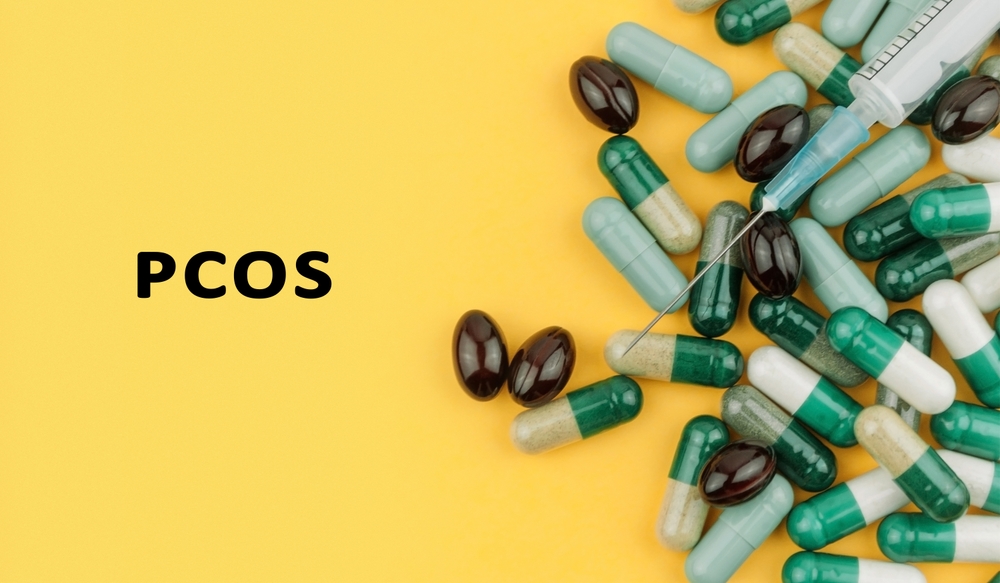
When To Consider Medication
Let's be crystal clear: There's absolutely no shame in choosing medication. This is especially true if:
- Your periods are completely absent or very painful
- You're trying to conceive and need help with ovulation
- Your mental health is suffering
- You've tried natural options but need more immediate relief
Think of medication as a support tool, not a crutch. Some people use it short-term while building long-term natural strategies. Others stay on it and feel great. There is no wrong way, there's only what works for you.
Finding Your Balance
PCOS doesn't come with a manual, and what works for one person might do very little for another. That's one of the most frustrating—and humbling—parts of managing this condition. But it's also what makes your journey so deeply personal. Finding your balance means tuning in, experimenting, and giving yourself space to evolve.
Here are a few tips for getting started, while you figure out what works best for you:
1. Choose One To Start
Maybe you start with medication to regulate your cycle or reduce acne because you just need some relief. There is absolutely nothing wrong with that. For many, medication is a lifeline that gets them to a more stable place where they can start adding in natural changes with more clarity and consistency.
On the other hand, maybe you're someone who prefers a more holistic route from the beginning. In that case, start by prioritizing nutrition, sleep, gentle movement, and targeted supplements. You might find that these changes alone dramatically improve your energy, mood, and cycle. That's powerful too.
2. Be Open To Change
It's also important to remember that balance isn't static. You may go through seasons where you lean more heavily on medication—like during a particularly stressful time, or if you're trying to conceive. Other seasons might invite more focus on natural healing and self-care. PCOS is dynamic, and your plan should be flexible enough to shift with your needs.
3. Lean On A Support System
Support is key in this process. Having a knowledgeable, compassionate healthcare provider can make all the difference. So can being part of a community of people who understand what you're going through. Journaling your symptoms, tracking your cycle, and tuning into how your body responds to different strategies can also help you become your own best advocate.
4. Be Kind To Yourself
Above all, be kind to yourself. Managing PCOS should be about creating a life where you feel healthy, informed, and in control, and that starts by giving yourself permission to experiment, reassess, and keep going, even when things don't go exactly to plan. Your version of balance is valid, and it's worth pursuing.
Final Thoughts
Whether you lean toward natural remedies for PCOS or prefer a more medical route—or land somewhere in the middle—what matters most is that your approach feels right for you. You don't have to choose a side. You're allowed to evolve.
If you're looking for expert support and research-backed strategies visit Fem Excel. They offer personalized programs designed to help women with PCOS balance their hormones, reclaim energy, and feel in control of their health.
You're not broken. You're powerful. And with the right tools, you can thrive with PCOS.
References:
(1) Shukla A, Rasquin LI, Anastasopoulou C. Polycystic Ovarian Syndrome. [Updated 2025 May 4]. In: StatPearls [Internet]. Treasure Island (FL): StatPearls Publishing; 2025 Jan-.
(2) ​​Kiani AK, Donato K, Dhuli K, Stuppia L, Bertelli M. Dietary supplements for polycystic ovary syndrome. J Prev Med Hyg. 2022 Oct 17;63(2 Suppl 3):E206-E213. doi: 10.15167/2421-4248/jpmh2022.63.2S3.2762. PMID: 36479481; PMCID: PMC9710389.
(3) Grant P. Spearmint herbal tea has significant anti-androgen effects in polycystic ovarian syndrome. A randomized controlled trial. Phytother Res. 2010 Feb;24(2):186-8. doi: 10.1002/ptr.2900. PMID: 19585478.

